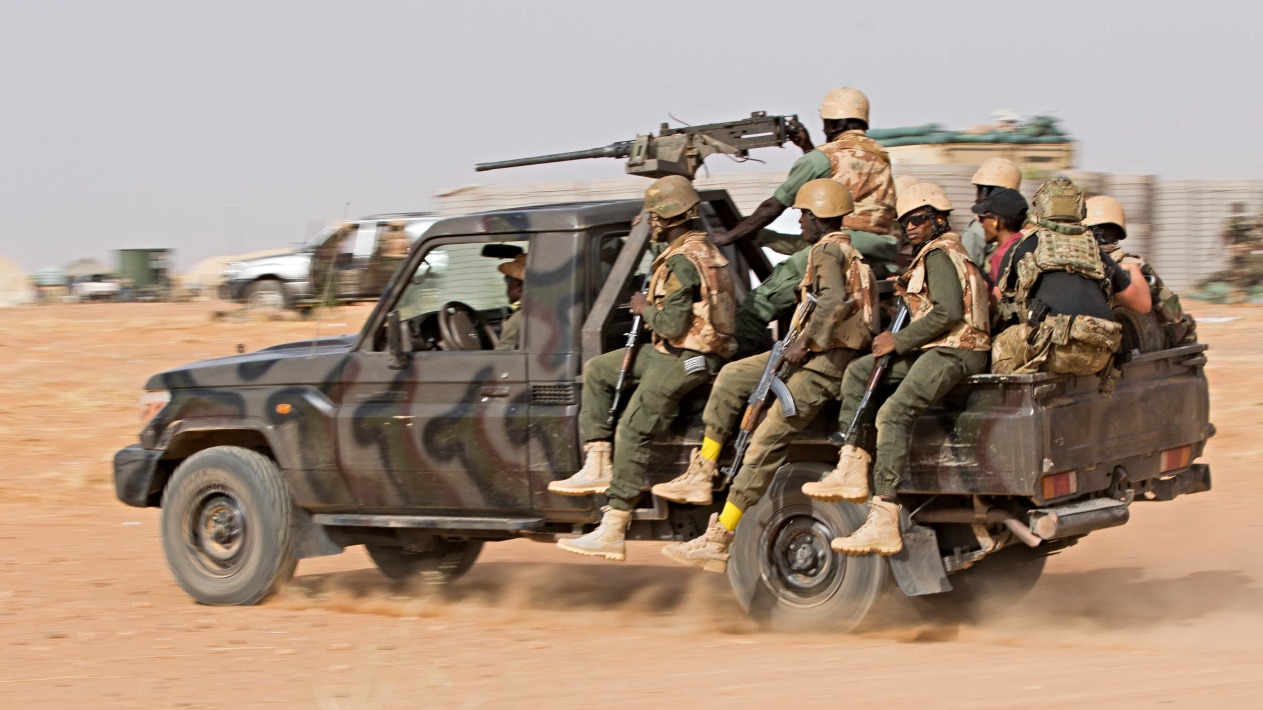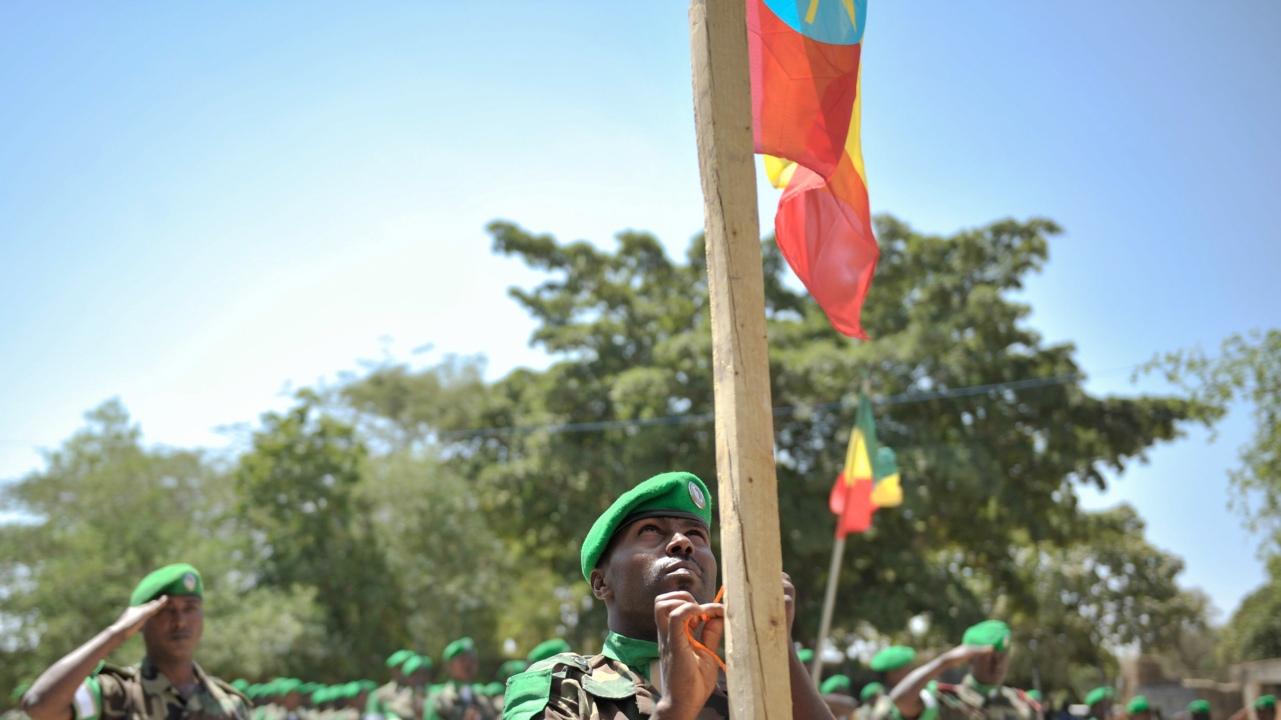Russia’s use of mercenary groups in conflict zones is an increasingly used tool to gain influence across Africa. Mercenaries allow Russia to deploy military forces to bolster autocratic regimes abroad and support regimes who back its global ambitions. However, these mercenaries lack accountability and allow the ability to deny military involvement in foreign countries.
A UN report in March 2021 highlighted significant Russian-directed mercenary activity in the ongoing conflict in the Central African Republic (CAR). UN representatives identified several instances where Russian military contractors have assisted the CAR President Faustin-Archange Touadéra in combatting rebel groups, alongside training government forces and providing a security attaché for CAR government figures. The report identifies Russian mercenaries as engaging in widespread human rights abuses alongside government forces.
The alarm over Russian mercenary activity in the CAR comes amidst wider concern regarding Russia’s increasing support for authoritarian regimes across Africa. The use of mercenary forces – rather than the Russian military or the more ‘traditional’ process of supplying weapons – provides Russian President Vladimir Putin’s regime the scope to commit human rights violations indiscriminately and circumvent international restrictions in efforts to support regimes and governments abroad. This presents an additional challenge for states and agencies in responding to and holding those involved to account.
Russian mercenaries across the non-Western world
The presence of Russian-based mercenary groups across conflict zones in the non-Western world is nothing new. Mercenary groups organised by Russian figures close to Putin’s government have operated in states as diverse as Libya, Syria, Madagascar and Sudan.
An important figure amongst these individuals is Yevgeny Prigozhin, a close associate of Putin who previously worked within the Kremlin. Prigozhin is widely known as the individual behind Russia’s ‘troll factory’: the Internet Research Agency. This organisation has employed hundreds of bloggers to spread online disinformation, criticise the actions of Western governments and promote favourable opinions of Putin’s regime. The US government has compiled evidence claiming that Prigozhin was a central figure in efforts to interfere in the 2016 US election, and has subsequently offered a reward for information leading to his arrest.
Prigozhin’s mercenary activities include allegedly operating and funding the Wagner Group, whose operations vary in both scope and location. Their military contractors have been employed to guard key Russian installations, agencies and buildings in Venezuela, alongside more direct instances of combat against Syrian rebels, and have clashed with US commandos in February 2018 in Syria.
Russia’s diplomatic strategy of gaining autocratic support
Russia’s operations in the CAR stem from a 2017 meeting between President Touadéra and Russian foreign minister Sergei Lavrov. Touadéra, facing a UN arms embargo and continual instability from rebel groups, requested military assistance from Russia, alongside training for embattled armed forces. The CAR government in return offered lucrative mining contracts.
Russia’s response to the CAR’s request involved gaining an exemption from the UN embargo to provide weapons and equipment to its military, but it also crucially involved the deployment of Wagner mercenaries.
Such deals resonate with the recent growth of reports and scholarly literature highlighting Russia’s ‘return to Africa’. This return is seen as a similar process to the support the USSR provided to African regimes throughout the Cold War. What concerns Western analysts with Russia’s activities is that much of this effort is expended to bolster and support existing authoritarian regimes across the non-Western world. Russia does not export democracy or human rights, instead providing stability for the ruling regime and fulfilling other self-interests, such as gaining raw materials from recipient regimes.
Russia’s autocratic support acts as an effective approach to garner diplomatic allies to reshape international norms to better suit its authoritarian rule. These links are apparent in Russia’s dealings with Touadéra’s government, with the objective in the CAR of gaining favour and diplomatic ties with a former French colony, thereby severing the country’s ties with France and the EU.
Driving autocratic support without risk or accountability
Russia’s use of the Wagner Group in the CAR and elsewhere is tied to the wider issue of autocratic support and international accountability. Russia’s use of mercenaries provides substantial benefits in achieving the aims of autocratic support, with minimal risks involved. According to Putin, Wagner operates as an entirely independent organisation, with a leadership entirely unconnected to Prigozhin and the Russian government. Prigozhin has claimed Wagner does not even exist.
Such an approach passes the blame – and any activities that Wagner undertakes – from the Russian state, and crucially shields Putin’s regime from wider international backlash regarding the use of force abroad. Russian mercenaries, allegedly acting on the orders of the government, have subsequently been deployed to key strategic locations such as the Crimea, Syria and across Africa to fulfil Russia’s geopolitical aims without featuring the diplomatic roadblocks of committing state military forces.
Putin’s regime is therefore relatively unscathed in its approach to gain greater influence and diplomatic ties abroad. While recipients such as Touadéra’s government are receiving Russian assistance, there remains a veneer of plausible deniability on Russia’s side that can be utilised if necessary.
A challenge for democratic actors
The use of private military presents a clear challenge for western democratic states regarding Russia’s efforts to become a more substantial actor in Africa – a strategy that is not beholden to the standards of democracy and human rights that other external actors, namely the EU and US, often purport to induce across the continent. With this impunity, it becomes increasingly difficult for actors opposed to Russia to call out instances of direct support for authoritarian regimes, while the Russian regime can use more severe methods of control and support in recipient countries, including inflicting human rights violations.
For the West, this is not a situation with a simple solution. The continued use of private military contractors such as the Wagner Group is significant and challenging because of the veils of disinformation and deniability that surround its origins, leadership and day-to-day operations. Efforts to uncover the hierarchy of leadership in Wagner and other mercenary groups, such as Bellingcat’s report and the contributions scholars have made in conjunction with independent Russian media, are steps towards definitive proof of Prigozhin’s involvement and funding. However, the growth of private military groups in executing the orders of autocracy-supporting states, such as Russia, is under-researched and under-reported, leading to a significant knowledge gap in the ways authoritarian forms of government can be supported abroad.
Photo: MINUSCA Peacekeepers Patrol PK5 Neighbourhood in Bangui, CAR. UN Photo/Eskinder Debebe. 22 October 2017. Bangui, Central African Republic. Licensed under CC BY-NC-ND 2.0.





